


Framed or unframed, desk size to sofa size, printed by us in Arizona and Alabama since 2007. Explore now.
Shorpy is funded by you. Patreon contributors get an ad-free experience.
Learn more.

- Tough Guys
- Lost in Toyland
- And without gloves
- If I were a blindfolded time traveler
- Smoke Consumer Also Cooks
- Oh that stove!
- Possibly still there?
- What?!?
- $100 Reward
- Freeze Frame
- Texas Flyer wanted
- Just a Year Too Soon
- WWII -- Replacing men with women at the railroad crossing.
- Yes, Icing
- You kids drive me nuts!
- NOT An Easy Job
- I wonder
- Just add window boxes
- Icing Platform?
- Indiana Harbor Belt abides
- Freezing haze
- Corrections (for those who care)
- C&NW at Nelson
- Fallen Flags
- A dangerous job made worse
- Water Stop
- Passenger trains have right of way over freights?
- Coal
- Never ceases to amaze me.
- Still chuggin' (in model form)
Print Emporium
Candy Factory Kids: 1913
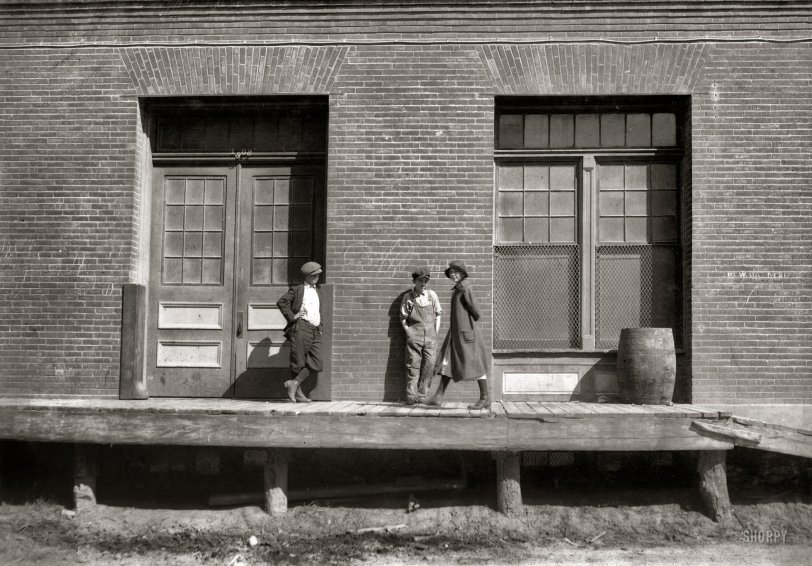
October 1913. Dallas, Texas. "A few of the young workers in Hughes Brothers Candy Factory, South Ervay Street. I counted five going and coming at night and at noon, that appeared to be from 12 to 15 years old. One girl told me that she is 13 years old, 'but we have to tell them we're 15. I run a chocolate machine.' " Photograph and caption by Lewis Wickes Hine. View full size.
Nuff Said
Granted that in many families during the era it was imperative for children to work in order for the families to survive, since no government handouts were available. Child labor laws came into being because of the long working hours and, in many places, horrid and unsafe working conditions. The long hours prevented many children from obtaining anything close to literacy and doomed them to a lifetime of poverty and manual labor. Fortunately, and as many posters have already said, the grueling labor suffered by these children resulted in them becoming resilient, responsible, and able to persevere in the face of future hardships....but at what cost.
Child labor my a--
My fondest memories as a "child" are not of hanging around the neighborhood with nothing to do, bored out of my face, but of the summers spent working on a farm. Hard work? Yes. Rewarding? Very. Great pay? Back then, I was able to stretch it out the entire year until harvest started up again. Oh, and at 12 I was able to reach the clutch.
Not exactly "backbreaking"?
I'm curious, Dave. What are you thoughts on child labor laws? It appears from your frequent comments on the matter that you feel that children should be allowed to work from the time they can walk, and not only should we be able to force them to work, but we should be able to force them to work around dangerous machinery, and, Yes, be robbed of their childhoods (oh, the horror!, says Dave). What an unbelievably deranged point of view you have. Do you actually believe that these children had a marvelous existence? If so, you're deluding yourself.
Did you ever wonder why so many of these photographs of this era showed nothing but grinding poverty? It wasn't because the photographers were trying to earn their keep by finding sensational subjects. It was because it was so damn easy to find. Use your head: these kids weren't having fun working in candy factory. You can sugar coat it all you want (ha ha), but child labor was nothing but a disgrace. And child labor laws were a godsend to generations of children.
I'm not expecting this comment to be published, but I sure as hell hope that you read it. One has to wonder, what do you have against kids? Kid loses his arm in a thresher? Apparently, you wouldn't have a problem with that: kids gotta work, and that's what happens. Your attitude is nothing short of sickening.
[Evidently the pills aren't working. - Dave]
Spare Me.
Right, all of us worked, and are just fine. None of us were alive in 1913. I suspect most of us are baby-boomers. So none of us can speak with much authority of how things were at the time this photo was taken.
We're not talking about working for your dad on the farm, or picking up an early paper route before school. I know that gives us the warm fuzzies.
We're talking about six days a week, backbreaking labor, which these children were forced by economic circumstances to undertake. Apples and oranges, people, apples and oranges.
[Work in a fabric mill (and, I would imagine, the candy factory) was not exactly "backbreaking." - Dave]
Working Kid
I spent my first 27 years of life working on a dairy farm. At 5, I had daily chores. At 11 years old, I was tall enough to reach the clutch on the Case tractor and was put to work in the fields operating heavy machinery. At 14 I drove the farm truck to and from the fields (what a great non emissioned 350 V8 that truck had!). I ended up just fine even though I worked most of my childhood. Work at an early age teaches responsibility and a good work ethic.
Workin' kids
When I was a kid, I had a paper route, worked in fields and any other job I could find. Still had time to be a kid too. I would wonder how many hours a day the kids worked and whether they were afforded time for school work. I sure agree that today's kids are pampered too much. I try to keep my 11 year old daughter busy with daily jobs around the house, but she still has lots of time to do kid things too.
Historic building
The Hughes Brothers building is south of downtown Dallas in the Cedars, which was a Jewish neighborhood around 100 years ago, next to Old City Park, where several historic buildings have been relocated, including the Millermore mansion. The factory is said to have produced "the first African-American soda pop."
"Robbed of their childhood?"
"Robbed of their childhood"? Spare me. Childhood today consists of a pampered, entitled existence, devoid of imagination, cluttered with electronic entertainment devices and other brain-deadening paraphernalia, their days filled with pre-planned, adult-supervised "activities" (youth sports, play dates, etc.), their parents reduced to holding their breaths for 21 years or so, hoping their kids come out the other end without being completely screwed up or over-diagnosed with some sort of "syndrome", and at least reasonably capable of actually living on their own without Mommy and Daddy sending them a check every other week. The youngsters depicted in many of these photographs grew up with notions of responsibility, self-reliance, and self-sufficiency that seem almost quaint in today's world. God bless them!
Oh Wow!
A kid, working in a candy factory. How lucky can you get? When I was a kid I worked in a chicken house shoveling you know what.
Today
"Robbed of their childhood" would be letting them sit in front of a game console, television or computer.
Another time
Life was hard for our working class ancestors. Mom kept house with little money and cared for the small children. Often she took in other people's laundry and mending to make some money. Dad worked six days a week for low pay as a farm worker or factory laborer. Those families needed the income from their children's labor on the farm or in the factories to survive.
Like a kid in a...
If I had to pick between being a breaker boy in a coal mine, and running a "chocolate machine" - I'm pretty sure which one I'd pick.
Some conditions for child labor were admittedly awful. I think its a bit of a stretch to melodramatically delare that all their childhoods were entirely robbed, though. Kids have always worked, until very recently. Why do you think farm families had 6+ kids? And farm work is consistently one of the most dangerous working environments there is.
If this is really Deep Ellum, there will be a tattoo parlor just out of frame.
The Chocolate Factory
How many of the boys here were named Charlie?
Hasn't Changed Much
The Hughes building is still standing in Dallas and the loading dock at the back of the building looks much the same.
How sad
All these photos showing child workers makes me think how terribly sad on how all these children were thoroughly robbed of their entire childhood.
Where were all the adults? Taking a perpetual siesta? I know it was a totally different era and different culture, but still!
["Robbed of their childhood"? Oh brother. - Dave]





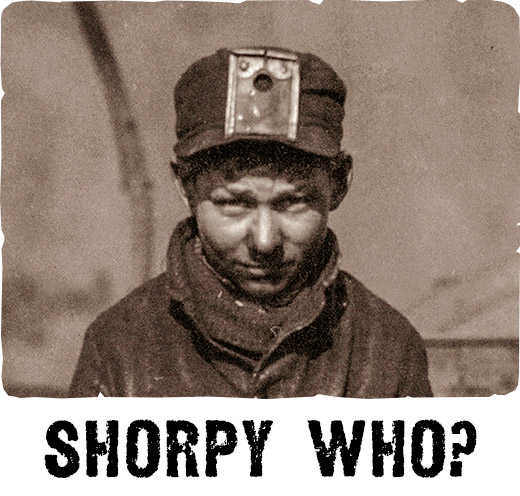
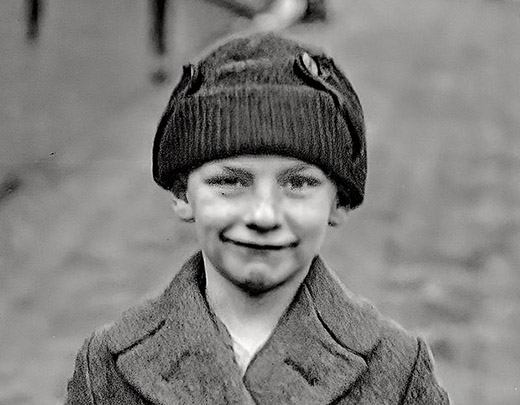
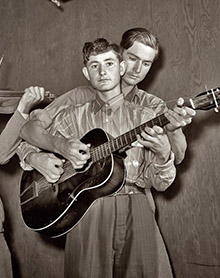
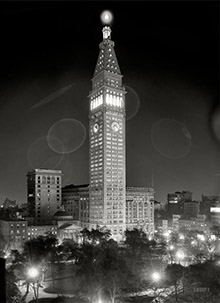
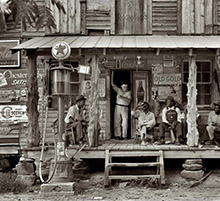
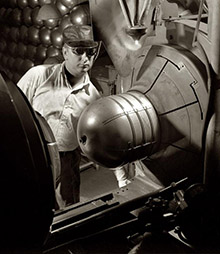
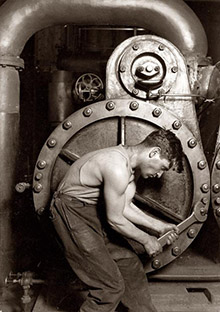

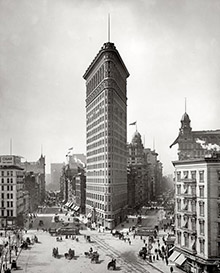



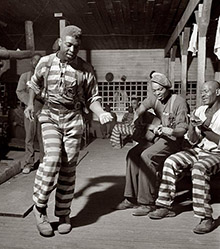

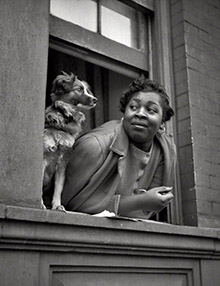

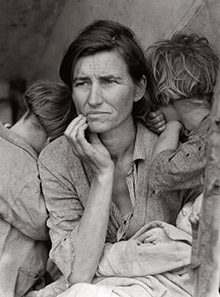

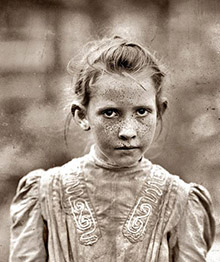
On Shorpy:
Today’s Top 5